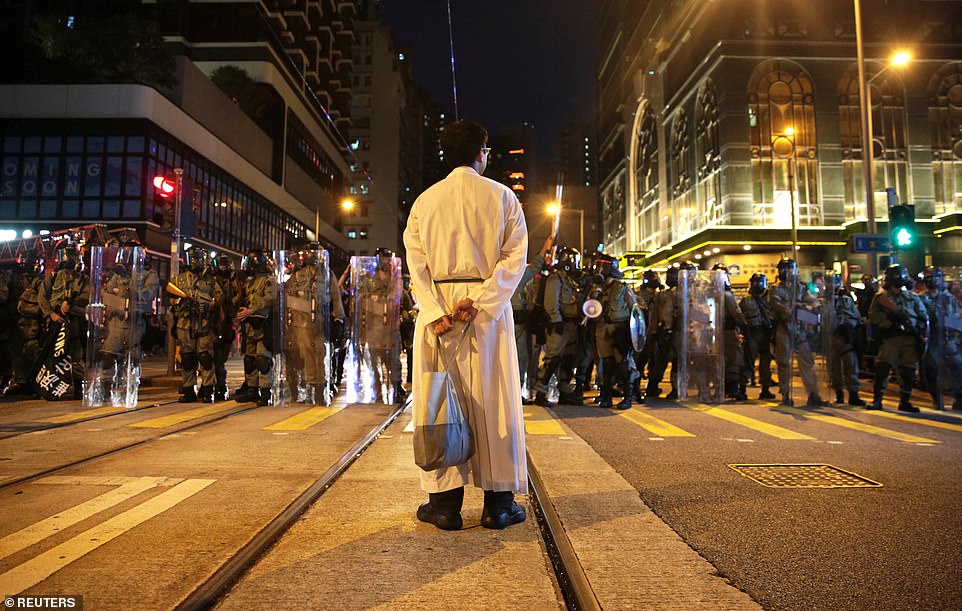|
Hong
Konger’s new secret weapon is their old secret weapon: Economic
Freedom
November 15th, 2020

Lone priest standing in front of line of police during Hong Kong protests on August 4th, 2019. Image from dailymail.co.uk.
Loss Of Freedoms In Hong Kong
In response to this situation, the United Kingdom offered 2.9 million (of Hong Kong's 7.5 million) residents a permanent home in the UK, resulting in increased housing demand there. Concerned that China is starting to restrict Hong Kong exit visas (as it has already done with mainland China), many of the remaining 4.6 million Hong Kong residents (who don't qualify for the UK's offer) are actively looking for options to flee what was once the most economically free country in the world. But Hong Kongers have a secret weapon: they have lived in the country which, for many years, held the title of “most economically free country in the world.” Hong Kongers have shown that they can produce great wealth even while living on an island mostly devoid of natural resources. In the past. Hong Kongers’ secret weapon was that they adhered to free-market principles, which gave them the power to prosper anywhere in the world as long as they had the freedom to supply what the market was willing to pay for. But Hong Kongers’ ability to create wealth was not tied to the land that China has reclaimed—even today, they could recreate their past wealth under a “New Hong Kong” elsewhere—if they had the same high levels of economic freedom.
Where to go for economic freedom?
However, as FEE readers already know, there is another option that is often overlooked and largely left untapped: Seasteading. We've had the technology to build floating cities (offering freedoms that can't be found anywhere else) out on the high seas beyond the EEZ for decades. For example, this is essentially what mega container ships are, except that their space is being used for cargo, not as living and industrial space. Why haven’t those who desire economic freedom already taken advantage of the technology available and built an independent, economically free, seasteading nation? I believe it is because life on a seastead is different from life on land. For one thing, space is more expensive. In addition, those who believe that life on the high seas should be like a Caribbean cruise are put off by the knowledge that unless they have the money to make it so, everyday life on a seastead won't resemble the lifestyle of the rich and famous. It will be more similar to what sailors on a naval ship or astronauts on the international space station experience. Living space will be at a premium and people will be there to be industrious and to prosper, not to have a vacation (although medical tourism will probably be big). This, again, is where Hong Kongers have a specific advantage. As expensive as life on the high seas is in per-square-meter rental costs, it is about on par with what Hong Kongers (which is one of the most expensive cities in the world) are currently spending per square meter per month anyway… so the People of Hong Kong could choose to move to a “New Hong Kong” seastead floating city while continuing to spend about the same each month (or less) on rent per square meter as they are today. Plus without a government regulating housing, people are free to make better use of their own space.
International laws, living-space costs, and time-frame
Anthony
Charles Olsen, |
